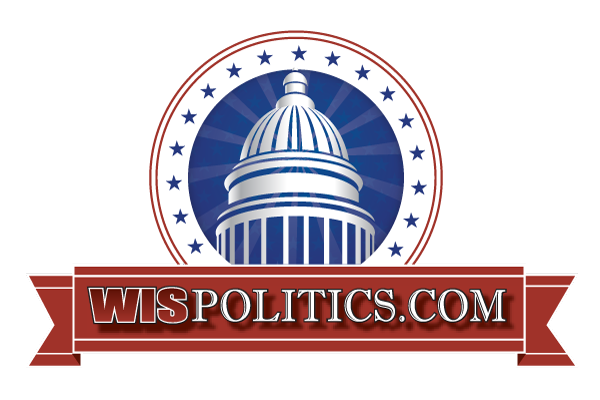From WisPolitics.com/WisBusiness.com …
— Panelists at a Wisconsin Technology Council conference emphasized the economic importance of health research, as related federal funding is under threat by the Trump administration.
Speakers yesterday addressed reductions in federal support for “indirect costs” associated with conducting health-related scientific research during the second day of the Wisconsin Entrepreneurs Conference in Madison.
Jenni Le, principal for Venture Investors Health Fund in Madison, said these cuts to National Institutes of Health funding jeopardize a substantial economic engine for the U.S. economy.
“If you cut NIH funding and you get fewer licensing opportunities coming out of universities, and you have fewer startups, I think that’s kind of the natural progression of what could happen,” she said.
Just last year, the U.S. had 450 medical technology investment deals, she noted.
“There are only 420 medtech investors, so that’s not a whole lot of deals per investor, and you know, from VI’s perspective, it seems like every year there are fewer and fewer investors willing to take the early risk in health care and life sciences,” she said. “Because it’s risky, it’s long, there’s a lot of regulatory risk involved.”
That trend, along with fewer startups spinning off from NIH-backed academic research, could result in an “exceptionally higher” bar for companies in this field to obtain venture capital financing, she said.
Abingdon Health USA Director Max Duckworth said NIH funding cuts also threaten the drug development pipeline. He noted fewer than 25% of drugs brought to market by pharmaceutical companies were developed in-house.
“If we’re really relying that much on external basic research, you know, for a new biomarker, for a biological target of interest, if we’re really relying that much on that as the genesis of drugs that down the road will make it to market, then we have a problem,” he said.
Tom Still, president of the Tech Council, yesterday noted other countries are now “successfully pirating” American researchers who feel they can’t continue their work in the United States. He raised the issue of “losing some of that intellectual muscle” as a result of the cuts.
Meanwhile, Dennis Winters, chief economist for the state Department of Workforce Development, said federal policies are putting a damper on economic activity across the board.
“They’re stifling hiring, they’re stifling firing … you know, investment, capital raising, because nobody knows what the tax regime’s going to be, what the import tariff regime’s going to be, what the regulatory regime’s going to be, across just about every product,” he said.
Winters said the drastic cuts to NIH funding are akin to having a driver with no car.
“We’ve got the research, we’ve got the fuel, but we can’t take it anywhere if we don’t have the vehicle,” he said yesterday.
He also called the administration’s tariffs “a hindrance” that will ultimately result in higher costs for U.S. consumers. And Duckworth said the tariffs in addition to the research impacts represent “a double whammy” for the life sciences industry.
Le also underlined the ripple effects of basic science in the Madison area, noting diagnostics company Exact Sciences has roots in the research process.
“I mean gosh, what would Madison look like today if we didn’t have Exact Sciences?” she said.
— The winner of the 22nd annual Wisconsin Governor’s Business Plan Contest, a Neenah-based company called Phoenix-Aid, plans to begin human trials this year for its chronic wound dressing product.
The company’s founder, Ashwinraj Karthikeyan, accepted the grand prize award yesterday during the Tech Council’s Wisconsin Entrepreneurs’ Conference in Madison. The startup company beat out 12 other finalists for the top spot in this year’s contest.
Its dressing product is meant to serve underserved markets, offering an advanced “nano-composite” material for dressing chronic wounds such as diabetic foot ulcers. The company boasts fewer complications and lower costs than the current standard of care.
A U.S. animal study is currently underway and human trials are slated to begin in India before year’s end, Karthikeyan said yesterday. In brief remarks following the award announcement, he touted Wisconsin as a “great place” to continue growing the business.
“There’s a lot of manufacturing, a lot of support for life sciences … that’s where we’re going to stay,” he said.
See more on the contest, including category winners announced yesterday, in the Tech Council’s release below.
Top Stories
– RFK Jr. is shrinking the agency that works on mental illness and addiction
– 4 in 10 Republicans worried Medicaid cuts would hurt their communities: poll
– In Axing mRNA Contract, Trump Delivers Another Blow to US Biosecurity, Former Officials Say
– Universal artificial blood could be coming to a hospital near you
– Novo’s Ozempic linked to rare cases of serious eye disorder, EU regulator says
– Contraceptives for poorest countries stuck in warehouses after US aid cuts
Press Releases
– Marshfield Medical Center-Eau Claire: Earns national recognition for maternity care excellence




